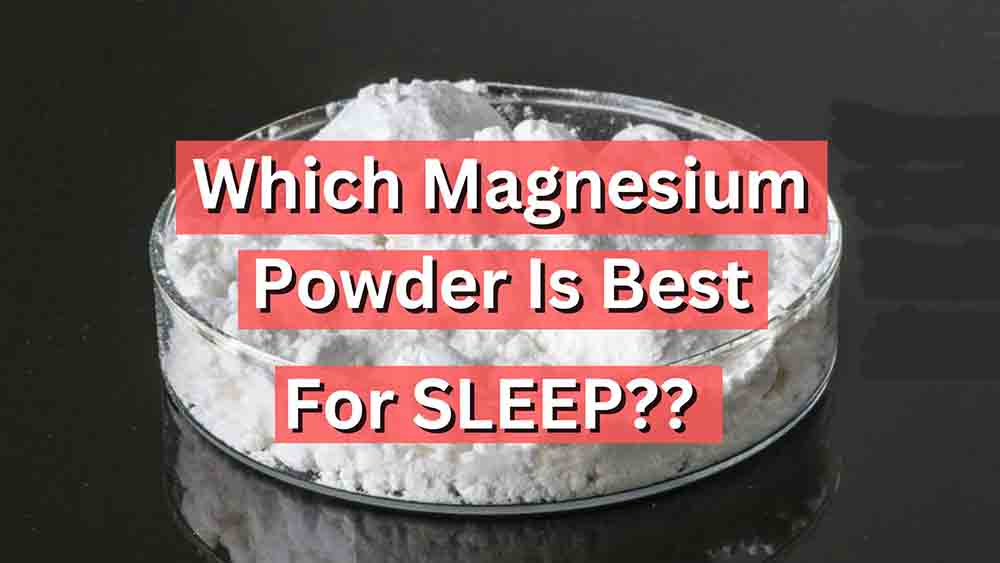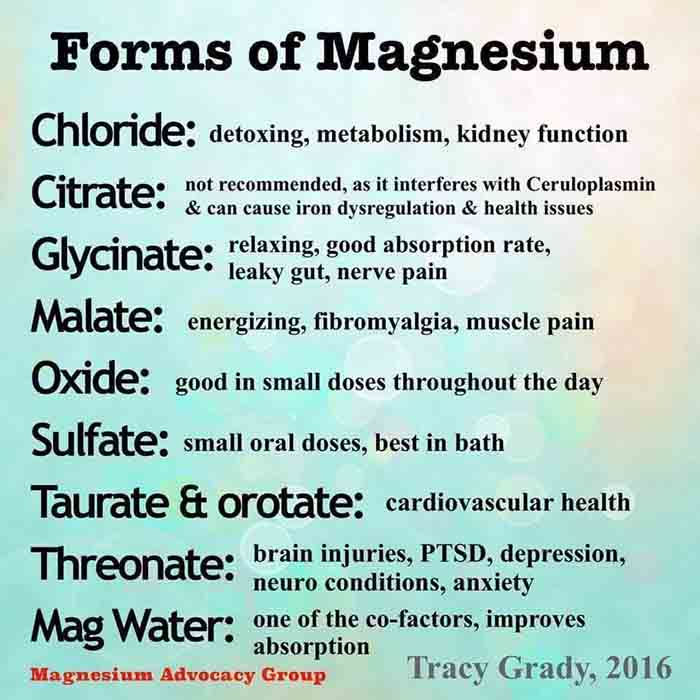
If you’re reading my article about magnesium powder for sleep my guess is that you’ve had a few nights in a row of bad sleep (or longer) and you’ve been talking to some friends who swear by taking magnesium powder for their sleep.
I’m glad that you’re taking the time to do some research into natural products because over the counter sleep medications and drugs have side effects.
Actually I don’t call them side effects, they’re just effects of the drugs. If herbs, vitamins and sleep supplements had “side effects” like drugs do they’d be taken off the market and the owners of the companies would be put in prison.
But I digress…
Using natural remedies like herbs, spices, vitamins, minerals, homeopathic, traditional Chinese Medicine (TCM), supplements and nutraceuticals are much much safer than synthesized drugs made in an unnatural laboratory under blue light that do nothing but mask symptoms let alone cure the actual root cause of the problem.
The trick with natural substances like magnesium powder for sleep as an example is you have to have patience and an open mind. Because natural solutions are not synthesized and hyper concentrated they take longer to work, but they do work other wise 80% of the drugs we make wouldn’t be based on a natural compound.
Overall Benefits of Magnesium
I hear many people talk about how magnesium helps the body run over 300 biological processes, while that’s true, it’s also true that magnesium run 42% of our 9,000 enzymes. Here are some interesting facts about magnesium (unrelated to sleep but still interesting) that you may not know…
- Energy: Magnesium is necessary to create ATP (energy)
- Vitamin D: Magnesium is required to create 1,25 active form of Vitamin D
- Detoxification: Magnesium is required to chelate heavy metals when you sleep
- Hormone Conversion: Magnesium is necessary to convert thyroid hormone T4 to the active form T3 in your liver
- Reduces stress: Magnesium is the first mineral lost due to stress
- Regulates Neurotransmitters: Magnesium plays a key role in regulating neurotransmitters, which send signals throughout the brain and nervous system, impacting mood and mental health.
- Bone Health: Magnesium is crucial for bone health as it helps regulate calcium and vitamin D levels, which are essential for maintaining strong bones.
- Insulin Sensitivity: Magnesium can improve insulin sensitivity, helping to regulate blood sugar levels and reduce the risk of type 2 diabetes.
- Protein Synthesis: Magnesium is involved in protein synthesis, which is essential for muscle repair, growth, and overall bodily functions.
- DNA Repair: Magnesium is necessary for DNA repair and replication, ensuring that the body’s cells function properly and remain healthy.
- Heart Health: Magnesium helps maintain a regular heartbeat by supporting the electrical activity in the heart, potentially reducing the risk of arrhythmias and cardiovascular disease.
- Inflammation: Magnesium has anti-inflammatory properties that can help reduce chronic inflammation, which is linked to various diseases such as arthritis and cardiovascular disease.
- Cognitive Function: Magnesium plays a role in cognitive function, including memory and learning, by supporting synaptic plasticity and protecting against neurodegeneration.
- Sleep Regulation: Magnesium aids in the production of melatonin, a hormone that regulates sleep, contributing to better sleep quality and reduced insomnia.
- Migraines: Magnesium deficiency is linked to migraines, and supplementation can help prevent and reduce the severity and frequency of migraine attacks.
Forms of Magnesium

It’s really important you take the right forms of magnesium powder for sleep and in the right amounts. If you take too much magnesium, it probably will not be absorbed and cause you to flush our minerals in loose stools. As a result (and this is weird) it’s possible to deplete minerals (including magnesium) by taking too much magnesium or not absorbing it.
The technical term is magnesium induced magnesium deficiency syndrome. It was first named by Dr. Stephen Davies who called it “gastro-intestinal hurry”. The form of magnesium powder for sleep that you want to take is magnesium glycinate.
For some reason the amino acid glycine when bound to magnesium and taken for relaxation and sleep seems to have a really good effect. In fact, people taking magnesium supplements experienced a 37 percent improvement in sleep quality.
For your enjoyment here’s a breakdown of the different forms of magnesium and their impact on human physiology.
- Chloride: detoxing, metabolism, kidney function
- Citrate: not recommended, as it interferes with Ceruloplasmin & can cause iron dysregulation & health issues
- Glycinate: sleep, relaxing, good absorption rate, leaky gut, nerve pain
- Malate: energizing, fibromyalgia, muscle pain
- Oxide: good in small doses throughout the day
- Sulfate: small oral doses, best in bath
- Taurate & orotate: cardiovascular health
- Threonate: brain injuries, PTSD, depression, neuro conditions, anxiety. More on magnesium threonate.
- Mag Water: one of the co-factors, improves absorption
Why Magnesium Powder For Sleep?
I’m a big fan of taking magnesium and melatonin together but magnesium is a necessary mineral that I supplement daily, not just for sleep but other reasons too. Melatonin is an incredible molecule too but melatonin must be taken correctly for it to work.
How does magnesium help improve sleep?
Reduces Anxiety and Tension
Magnesium can help reduce your anxiety and tension, which is pretty common for people dealing with insomnia. A study by Dr. W. Davis, MD, found that 99% of patients using magnesium chloride experienced rapid, uninterrupted sleep and reduced anxiety and tension during the day.
Magnesium for the win!
Supports Relaxation
Magnesium is known to relax both your muscles and the mind. Magnesium glycinate, in particular, is what I recommended because of how effective it is as a muscle relaxer. And it can help prepare your body for sleep. Generally I take it 1 hour before bed.
Balances Biological Clock
According to Dr. J. Durlach, magnesium status is linked to your biological clock and syncing your circadian rhythms to nature. And keeping a balanced magnesium status is crucial for the proper function of the pineal gland, which regulates sleep.
The pineal gland is one of the main areas of your brain that produces melatonin, and it is a heavily magnesium dependent gland.
Reduces Inflammation
Poor quality sleep or sleep deprivation can increase levels of interleukin-6 (IL6), a chemical that can cause inflammation throughout your body. Magnesium helps mitigate this effect, promoting better sleep.
It’s interesting how a lack of magnesium causes oxidative stress. Oxidative stress reduces magnesium. You see the cycle?
You need magnesium daily and taking magnesium powder for sleep is just one more reason to take it.
Natural Sedative Effects
Magnesium has natural sedative effects that can help you induce sleep. For example, taking a magnesium bath before bed can enhance relaxation and improve sleep your quality. You can wear something like an Oura Ring or a Whoop band and actually track this for yourself. I highly recommend doing that because you can change just one thing for 30 days and see a noticeable difference in your sleep scores just by supplementing with a high quality magnesium powder for sleep.
Supplementation Recommendations
For those who may not get enough magnesium from their diet, supplementation is what I recommend. A daily intake of 400–500 mg of supplemental magnesium can help you increase your magnesium stores and protect overall health, including your sleep quality.
How I Take Magnesium
- Orally – This is the best supplement (I take it with lunch and dinner)
- Magnesium IV – I might do this once or twice per year
- High Magnesium foods – Dark leafy greens (beet greens, collard greens, mustard greens), nuts (especially cashews and almonds), pumpkin seeds, spinach, black beans, lentils.
- Magnesium “Push” – I might do this once a year.
- Magnesium in water – I like Remag for the 100 ounces of water I drink every day.
- Transdermal magnesium – I use magnesium oil and a magnesium bath 1 hour before bed.
- Concentrated magnesium powder – I take this 1 hour before bed.
Other Supplements To Consider
As far as magnesium powder for sleep goes, you should consider vitamin B6 and boron. Vitamin B6 allows magnesium to enter the cell and boron helps to keep it inside. Magnesium should be 16 times higher inside the cell than outside the cell.
So for magnesium powder to work for sleep, it needs to get inside the cell.
More Sleep Tips
I also highly recommend making sure to watch the sunrise every morning to help reset your circadian rhythm for the day. I recommend looking in the direction of the sun (sun gazing) not looking at or into the sun. If you do this while grounded with no sunglasses, glasses or contact lenses in, you will allow the UVA, UVB, visible light and Infrared light to help increase cortisol (to wake you up) activate your suprachiasmatic nucleus and create melatonin in your pineal gland (and mitochondria) for the day.
Also I recommend blocking blue light during the day when inside and using devices by wearing yellow glasses (and software like Iris Tech). When the sun sets switch from yellow to orange glasses and install circadian light bulbs in your home.
Two hours before bed I recommend taking melatonin and swapping out your orange glasses for your red ones.
About an hour before bed I take magnesium powder for sleep in a shot glass full of water and then I get in my medicinal bath for sleep.
Conclusion
It’s important to note that you can’t just take a pill and expect to sleep better. You need to heal your mitochondrial health by changing your environment to support your circadian rhythms. I cannot stress enough that a pill or a food isn’t going to fix your insomnia or other sleep issues.
It’s going to take a complete change in how you live your life and the environment you live and work in.
The changes are going to require discipline but they’re simple, but not easy.
Questions:
- What magnesium powder for sleep do you take, if any?
- Has it helped?
- How much do you take and when?
- Do you track your sleep?
Comment below!

